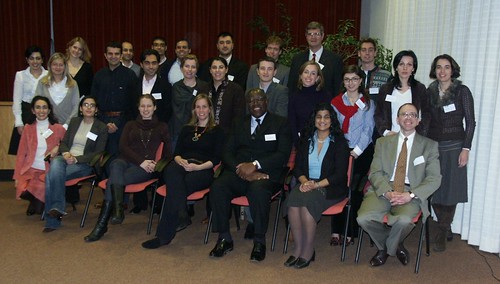Quite amazing that, if one looks precisely, our national legal systems and the baha'i legal system have some common features.
Consider the pettiness of men’s minds. They ask for that which injureth them, and cast away the thing that profiteth them. (Kitab-i-Aqdas, v. 122).
Liberty causeth man to overstep the bounds of propriety, and to infringe on the dignity of his station. It debaseth him to the level of extreme depravity and wickedness (Kitab-i-Aqdas, v. 123).
We approve of liberty in certain circumstances, and refuse to sanction it in others (Kitab-i-Aqdas, v. 124).
Liberty has to be limited because of the use man can make of it. In french law at least, it's exactly the same under some circumstances.
For instance, in the case know in France as "le lancer de nain" or in Germany as "Zwergweitwurf" (could maybe be translated as "the flying dwarf") kind of an very intelligent game in wich little persons agreed (to make their living) to be thrown through the air as far as possible by clients paying for it, the french Supreme Administrative Court hold on the 27th of october 1995 in a case Commune de Morsang-sur-Orge, that such a game violated the human dignity of the "flying dwarf" even if he consented.
Could be an interesting area of research to try to find clues about which would be the standard under baha'i law !
Baha'u'llah tells us :
Weigh not the Book of God with such standards and sciences as are current amongst you, for the Book itself is the unerring Balance established amongst men (Kitab-i-Aqdas, v. 99).A problem posed by the human dignity in Europe is to define when it begins. For example in a very recent ruling Vincent v. France on the 24th of October 2006, the European Court for Human Rights ruled that France had violated the human dignity of a prisoner (Mr. Vincent) by not providing for him the possibility to leave his zell alone because his weelchair could not get through the doors.
Say: True liberty consisteth in man’s submission unto My commandments, little as ye know it (Kitab-i-Aqdas, v. 125).
In this case, other ways could have been found to find a violation by France of it's obligations towards the prisonner.
Isn't there a risk of creating kind of relativeness of human dignity, when it should stay an absolute value on which our systems are based?
For french readers, there's an analysis of the ECHR ruling on this blog.

No comments:
Post a Comment